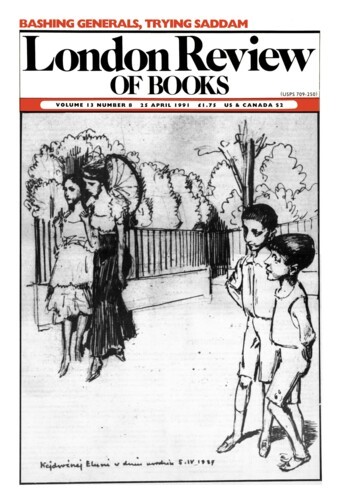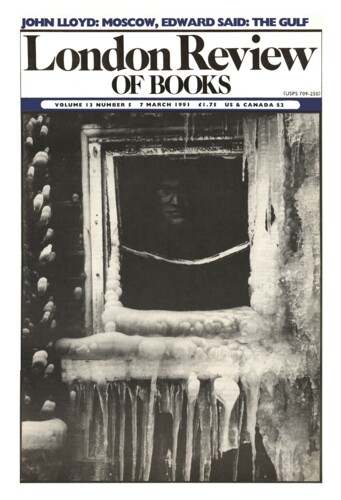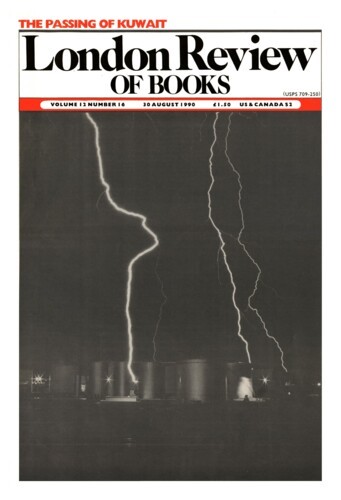With or without the workers
Ross McKibbin, 25 April 1991
This book contains reflections on both history and theory, and is written with David Marquand’s usual elegance and intelligence. Its 19 essays concern themes familiar to readers of his biography of Ramsay MacDonald and his distinguished study, The Unprincipled Society: how can we devise for modern Britain an appropriate ‘social democratic’ theory of social action, and how can we construct a ‘progressive’ coalition which might give it adequate electoral support. Twenty-five years separate the first essay from the last, and they are not published in the order they were written. They have been tailored to bestow unity, but the stitching sometimes shows: thus on page 89 we find the Attlee Government chided for not undertaking a ‘revolution of production’ which would ‘smash the structures and root out the habits which had already produced more than half a century of relative economic decline’. But ten pages after this Saint-Simonian utterance, we find it conceded that the Attlee ministry could hardly have done this ‘in the lifetime of a single government’. How is this to be resolved? The answer is that the second judgment was written 21 years before the first. These essays are, in fact, chapters in the intellectual and political biography of a young Croslandite (once a Bevanite) who became an increasingly bruised and disenchanted Labour MP, a founder member of the SDP, and who now (I imagine) stands between the Kinnockian Labour Party and the Liberal Democrats. From the point of view of the reader interested in understanding how he has come to argue what he does it might have been better had this been made more explicit.





